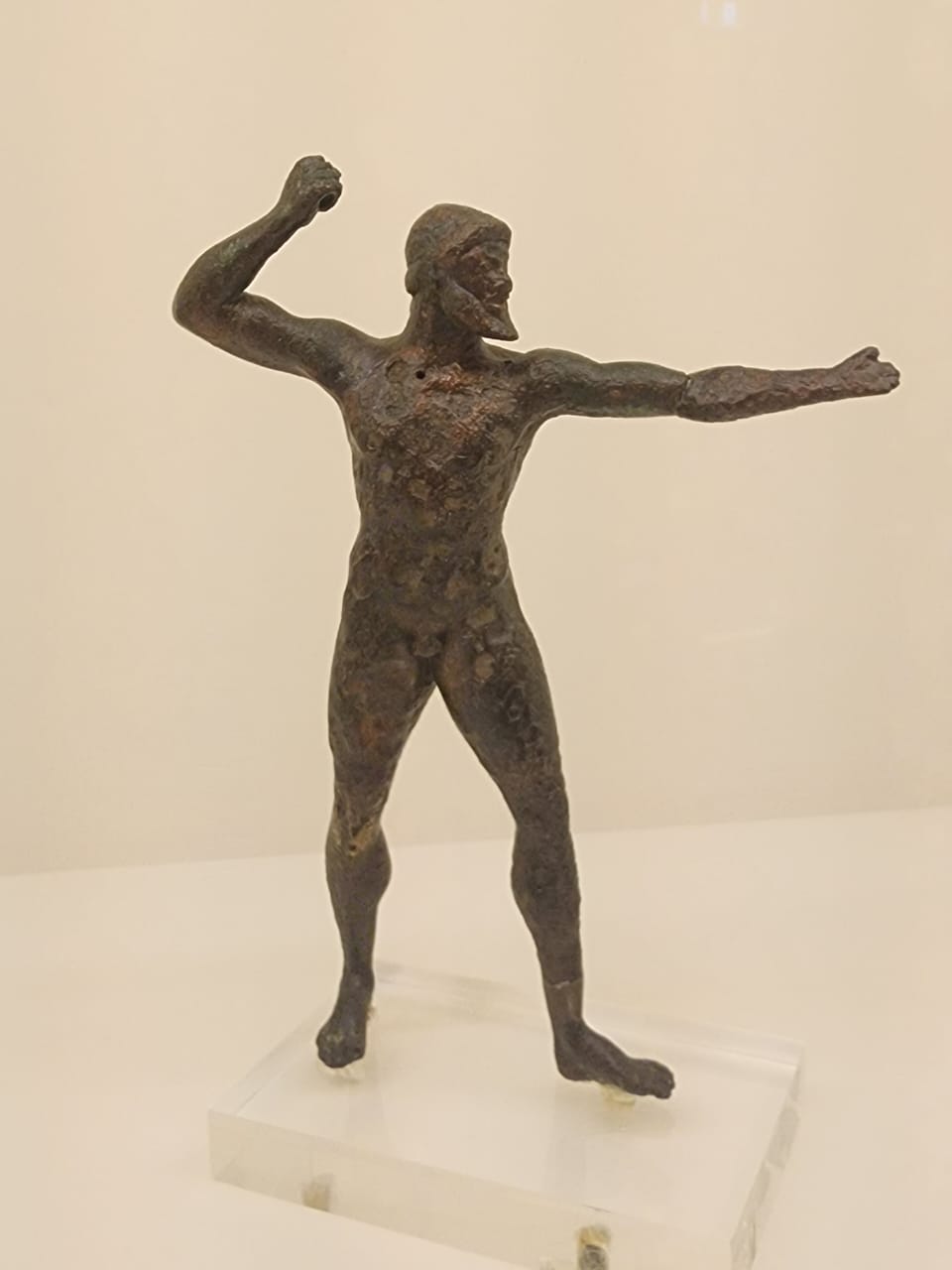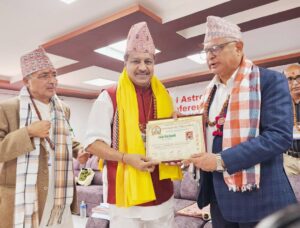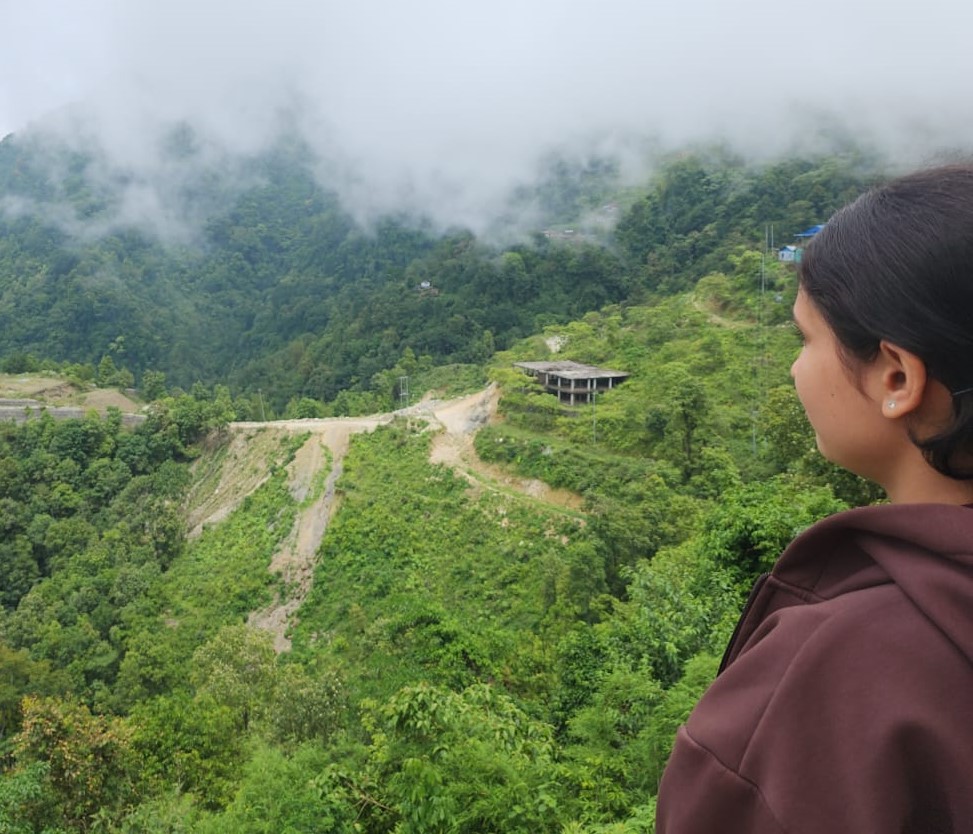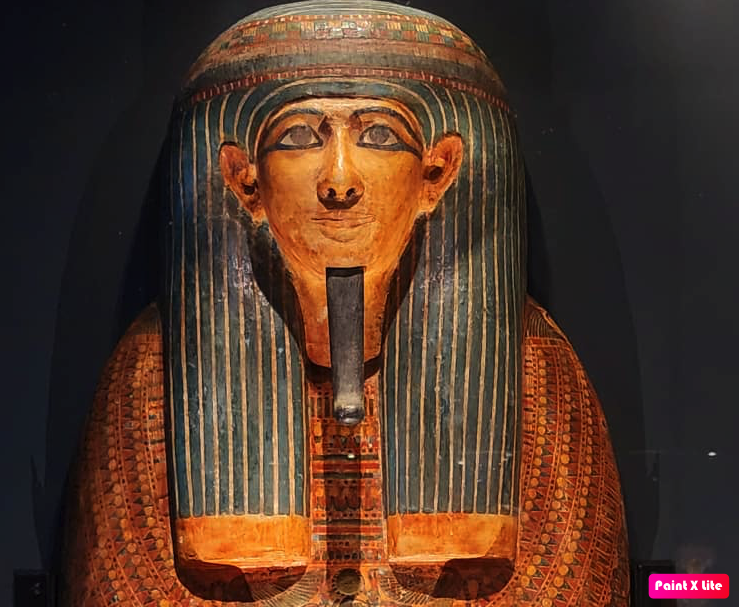
 As the saying goes, when we seek the past and our soul longs for the ancient, the hidden, and the sacred, the spirit awakens and listens.
As the saying goes, when we seek the past and our soul longs for the ancient, the hidden, and the sacred, the spirit awakens and listens.
It begins to guide us in subtle and mysterious ways.
What some may dismiss as coincidence is often the unseen hand of the spirit leading us to places where truth still echoes, time stands still, and ancient wisdom patiently waits to be remembered.
So when I recently stood before the doors of the Hellenic Museum in Melbourne, I felt drawn by something deeper than mere curiosity.
The visit wasn’t planned. While on my way to the Mind Body Spirit Festival, I had taken a wrong turn into William Street and found myself at the exhibition Rituals: Gifts for the Gods, which promised a journey into the divine world of ancient Greece.
Yet, for me, it felt more like a silent summons, an invitation from the past to witness not just relics and ruins, but the living soul of a civilisation that revered the holy in every facet of life.
As I stepped inside and wandered through its quiet galleries, a series of more reflective questions began to stir within me: Why do people offer gifts to the gods? What gives a place its sacredness? And why do the same gestures, prayers, and offerings echo across time, repeated by countless generations seeking something greater than themselves?
In ancient Greece, the answers lived not in words but in ritual. Through offerings of wine, honey, incense, and finely crafted prayer candles, the people expressed gratitude, asked for blessings, and sought to maintain harmony between the mortal and divine.
The exhibition doesn’t merely display these acts; it brings them to life, reminding us that long before temples were built of stone, sanctity was shaped by intention, reverence, and the unseen bond between the human heart and the gods.
One object in particular held me in silent awe, a bronze statue of Zeus, the mighty king of the Olympian gods.
Though modest in size, its presence was anything but small. The figure stood poised, commanding yet serene.
The thunderbolt once clenched in his uplifted hand, now long vanished, powerfully implied. In its finely worked features, I could feel craftsmanship and worship.
To the ancient Greeks, Zeus was more than a mythological figure. He was the divine enforcer of justice, the protector of oaths, and the unseen force that governed both storm clouds and fate.
This miniature figurine, once likely placed in a temple niche or offered at a sanctuary like Olympia, was not merely art but a conduit for prayer, a bridge between the worshipper and the heavens.
Standing before it, I sensed the energy it once carried. I imagined the devotee who had offered it perhaps a warrior before battle, a farmer praying for rain, or a family fulfilling a vow.
Mortals reached toward the divine through such offerings, not out of fear, but out of a deep longing to be seen, heard, and held by the cosmic order.
Further along the exhibition, I encountered an ancient and eerily contemporary space, an interactive installation inspired by the Oracle of Delphi.
In antiquity, seekers from across the Greek world travelled to the consecrated sanctuary of Apollo to pose their most pressing questions to the Pythia, the high priestess through whom the god was believed to speak.
From matters of war and peace to deeply personal dilemmas, all sought the same thing: guidance from the divine.
In this modern reinterpretation, powered by AI, visitors are invited to type their questions into a console, just as ancient pilgrims would have whispered their queries into the sacred chamber.
As I placed my hands on the platform and silently formed a question from my heart, I couldn’t help but feel a ripple of reverence.
The answer that appeared on the screen was enigmatic, much like the cryptic utterances of the original oracle, but it struck a chord within me.
What captivated me most was not the answer itself, but the intention behind the act, the surrender, the openness, the silent hope that something higher was listening.
Thousands of years may separate us from those early seekers, yet the desire to be guided through life’s uncertainties remains unchanged.
To stand in a space inspired by Delphi is to be reminded that wisdom is not always shouted; it is often whispered and requires stillness to hear.
As I slowly made my way out of the exhibition, I felt I had not merely observed the past, I had entered it, walked alongside its pilgrims, and stood in silent awe before its gods.
Each of the 119 artefacts, including several selected objects never before seen outside of Greece, from the bronze figure of Zeus to the recreated Oracle of Delphi, was more than a museum piece.
It was a vessel of memory and meaning, echoing the timeless human desire to honour the revered, to seek answers, and to feel held by something greater than ourselves.
What moved me most was the realisation that these ancient rituals, these gifts to the gods, were not about superstition but relationship.
They were acts of reverence, deep listening, and alignment with the unseen forces of life. Whether through offerings of olive oil and incense or whispered questions in a temple hall, the ancients lived with an awareness that the divine was not distant but near.
As I stepped back into the modern world, I carried with me the memory of what I had seen and a gentle reminder: the heavenly is never far.
It reveals itself when we pause, ask, and offer even the simplest gesture with sincerity.
In a world that often rushes past the invisible, Rituals: Gifts for the Gods reminded me that mystery is not meant to be solved, but honoured.
Award-winning writer Dr T. Selva is the author of the bestsellers Vasthu Sastra Guide and Secrets of Happy Living. To get a copy, WhatsApp 019-2728464. He can be reached at drtselvas@gmail.com. Facebook: Vasthu Sastra





















